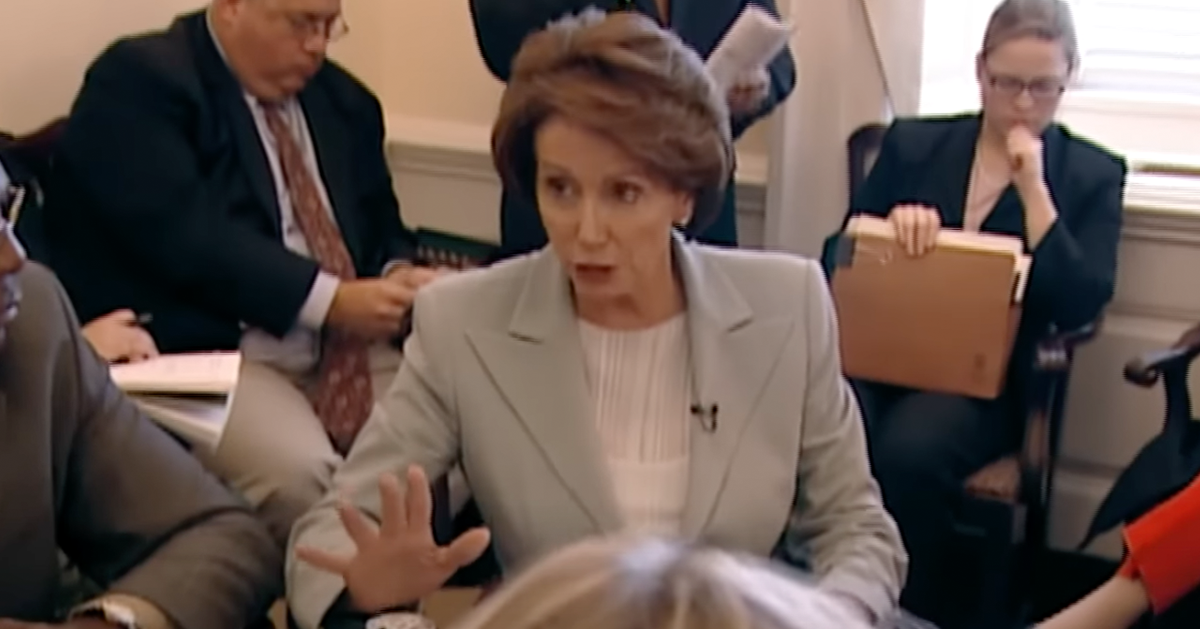Top Harris Advisors Reflect on Polling Errors and Media Tactics
The recent episode of Pod Save America grabbed attention when senior members of Kamala Harris's campaign discussed the obstacles they faced during the election, particularly in terms of polling discrepancies and media strategies.
Senior leaders of the Harris campaign, for the first time since her election loss, shed light on internal challenges, revealing polling data mismatches and struggles with conveying their message to critical audiences, as the Post Millennial reports.
On Wednesday's podcast episode, high-ranking figures within Harris's campaign, including senior advisor David Plouffe, opened up about the internal dynamics of the election.
They spoke candidly about the hurdles confronted, most notably the mismatch between public polls and their internal assessments. This marked the first public discussion by the campaign's key figures since Harris's defeat.
Plouffe highlighted that public opinion polls released in the latter part of September and the beginning of October indicated leads that were not reflected in the campaign's own internal figures.
These internal numbers suggested a much tighter race, especially in battleground states, where the margin remained thin at approximately 46-47% and 47-48%. Despite efforts, this discrepancy proved to be a persistent challenge throughout the campaign.
Analysis Of Battleground State Dynamics
In battleground territories, the race's closeness revealed itself starkly. Despite gaining a modest 0.51% bump following a debate, the shift was insufficient to alter the campaign's trajectory significantly. This dabble in upward momentum underscored a broader struggle with securing undecided voters, an aspect the campaign recognized as critical yet largely elusive.
The campaign's attempt to increase voter turnout did not yield the expected benefits, with Plouffe noting the "ferocious headwinds" that hampered progress. A particular sentiment among voters inclined them toward giving Republicans, including Donald Trump, another shot. This presented a formidable barrier to the Harris campaign's narrative and momentum.
Recognizing the pressing need for "big moments" to redefine the election race, Harris's team sought another debate opportunity with Trump. The hope was to create a significant turning point that could potentially sway public perception and increase support.
Media And Cultural Strategy Mishaps
Campaign Chair Jen O'Malley Dillon emphasized efforts to engage audiences through various channels, including podcasts aimed at reaching pivotal groups.
Despite these endeavors, the campaign's media outreach faced limitations. Athletes who supported Harris hesitated to publicly align their brands with the political arena, a hesitation that appeared less pronounced among Trump's supporters.
The difficulty of connecting with cultural narratives further emerged as a significant concern. Trump managed to tap into cultural currents more effectively, a factor Dillon acknowledged as challenging for their campaign and outreach efforts.
Traditional media, typically relied upon for swaying opinions, fell short of reaching crucial, persuadable demographics, such as young men, as explained by Senior Advisor Stephanie Cutter.
Reflections On Campaign Strategies
The intricate balancing act between utilizing various media platforms and ensuring a clear, undiluted campaign narrative emerged as a point of reflection. Cutter pointed out the risks associated with being spread too thin across multiple channels, which potentially muddled the campaign's narrative.
O'Malley Dillon expressed some retrospective thoughts on their podcast strategy. She suggested that an earlier and more assertive communication about their podcast goals could have aided in reaching their target audience more effectively, despite the constraints of time.
The campaign's reliance on "earned media" and the conflicting views on its effectiveness versus potential drawbacks created an ongoing narrative tension. The balance between gaining exposure and maintaining a consistent, positive message proved to be a delicate one.
In these reflections, the Harris campaign dissected the multitude of factors that influenced the election outcome, providing insights into the complexities of modern political campaigning and the unforeseen challenges that can arise in a volatile electoral landscape.
Ultimately, the podcast episode offered a candid evaluation of the campaign's attempts to navigate the turbulent political waters and the lessons gleaned from this arduous journey.





